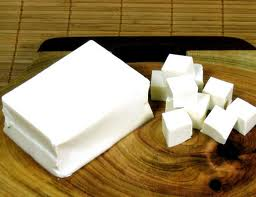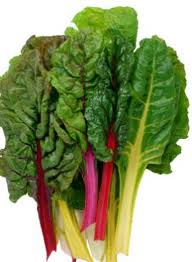Cayenne Chili Pepper: Heart healthy food Cardiovascular Benefits: Cayenne is full of nutritional and medicinal values. It is high in vitamins A, C, and the complete range of the B complex vitamins. Cayenne contain beta-carotene, a potent anti-oxidant that is rich in calcium and potassium which makes it great for the heart. There are many other types of chili peppers besides cayenne. The medicinal properties in cayenne is called capsaicin. This helps to reduce the cholesterol and triglyceride levels and also help improve circulation and keeps the blood flow smoothly through veins and arteries. Shaking hot chili powder on food may help prevent a spike in insulin levels after meals. A small study in Australia showed that by simply adding chili to a hamburger meal produced lower insulin levels in overweight volunteers. Medicinal Use and Health Benefits of Cayenne Pepper: Cayenne is useful for arteriosclerosis, arthritis, asthma, bleeding, high or low blood pressure, bronchitis, chills, colds, convulsions, coughs, indigestion, infections, jaundice, Stomach Ulcers, ,varicose veins, fight inflammation, Cardiovascular Benefits, Clear Congestion, and boost immunity. Externally cayenne is used for frostbite, painful joints, swellings,and varicose veins. When sprinkled on bleeding cuts, it will immediately stop the bleeding. Cayenne is also use internally when added to herbal formulas it stimulates the action of the other herbs. Warning: Very excessive use can cause damage to the kidneys and lead to pleurisy or gastro-enteritis Sources: Natural Remedies Encyclopedia by Vance Ferrell, Harold M. Cherne M.D. WebMD The Health Benefits of Cayenne by John Heinerman Disclaimer Read more information about cayenne here. Source: see Heart healthy...
Health Tips
Tofu: Heart Healthy Food Make soy protein the main attraction more often at dinnertime by cooking with tofu instead of red meat. You gain all the heart-healthy minerals, fiber, and polyunsaturated fats of soy — and you avoid a load of artery-clogging saturated fat. Try this today and make this part of your diet away from the meat. Diet Tip: Chop firm tofu, marinate, then grill or stir-fry, going easy on the oil. Add tofu to soups for protein with no added fat. Very delicious. Read about nutritional value of tofu here...
Flaxseed: Heart Healthy Food This shiny, honey-colored seed has three elements that are great for your heart: they are fiber, phytochemicals called lignans, and ALA, an omega-3 fatty acid found in plants. The body converts ALA to the more powerful omega-3s, EPA and DHA. In addition to the important omega-3 fatty acid ALA, flaxseed , not the oil, also contains a group of chemicals called lignans that may help protect the body from cancer. Lignans are phytoestrogens; plant compounds that act like the hormone estrogen. Flax seeds contain high amounts of mucilage and pectin, which give the plant emollient and laxative properties as well as mineral salts and fats with a high biological value (essential unsaturated fatty acids) Studies show that flaxseed may play a role in the prevention and treatment of the following health conditions: High cholesterol, Heart disease, Menopausal symptoms, Breast cancer, Colon cancer, Prostate cancer, Diabetes, Chronic constipation, Gastritis, duodenitis, and gastro-duodenal ulcer. Externally, flaxseed is excellent in poultices for sores, boils, inflammations, and tumors. Tip: Grind flaxseed for the best nutrition. Add it to cereal, baked goods, yogurt, even mustard on a sandwich. Read more about benefits of flaxseed here; Read more: The University of Maryland Medical System Corporation (UMMS) Sources Plants That Heal by George D. Pamplona-Roger, MD WebMD Medical Dictionary Natural Remedies Encyclopedia – Vance Ferrell . Harold M. Cherne,M.D....
Cherries: Heart Healthy Food There are two types of cherries: sweet and sour. Sour cherries are lower in calories and higher in vitamin C and beta carotene than the sweet cherries. Cherries are packed with anthocyanins, an antioxidant believed to help protect blood vessels. Cherries in any form provide these heart-healthy nutrients: the larger heart-shaped sweet cherries, the sour cherries used for baking, as well as dried cherries and cherry juice. Read more about cherries here. Tip: Sprinkle dried cherries into cereal, muffin batter, green salads and wild rice. Anthocyanins: these are compounds found in plants, particularly berries that have powerful antioxidant properties. Plants that has a rich supply of Anthocyanins are: Vaccinium species, such as blueberry, cranberry, and bilberry, Rubus berries including black raspberry, red raspberry, andblackberry, blackcurrant, cherry, eggplant peel, black rice, Concord grape, muscadine grape, red cabbage, and violet petals. Source: CDC, WebMD, Medical Encyclopedia, Medical...
Swiss Chard: Heart Healthy The dark green, leafy vegetable is rich in potassium and magnesium, minerals that help control blood pressure. Fiber, vitamin A, and the antioxidants, lutein and zeaxanthin, add to the heart-healthy profile. Diet Tip: Serve with grilled Tuna or as a bed for fish. Saute with olive oil and garlic until wilted, season with herbs and...
Sweet Potatoes: Heart healthy food Sweet potatoes are a hearty, healthy substitute for white potatoes for people concerned about diabetes. With a low glycemic index, these spuds won’t cause a quick spike in blood sugar. Ample fiber, vitamin A, and lycopene add to their heart-healthy profile. They are excellent sources of vitamins A and C. This is why one colonial physician called them the “vegetable indispensable.” Tip: Enhance their natural sweetness with cinnamon and lime juice, instead of sugary toppings. More...






